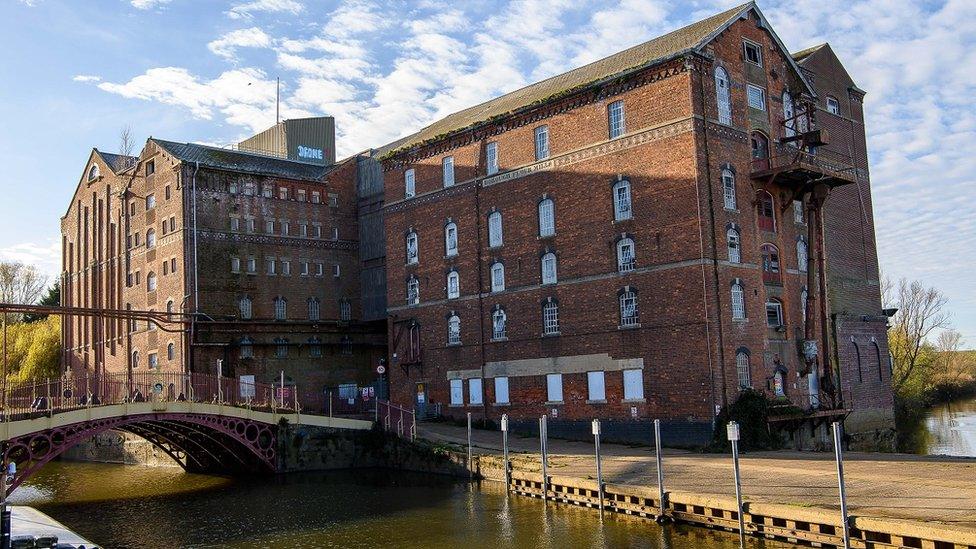London Bridge: Derelict railway arches restored to past glory
- Published
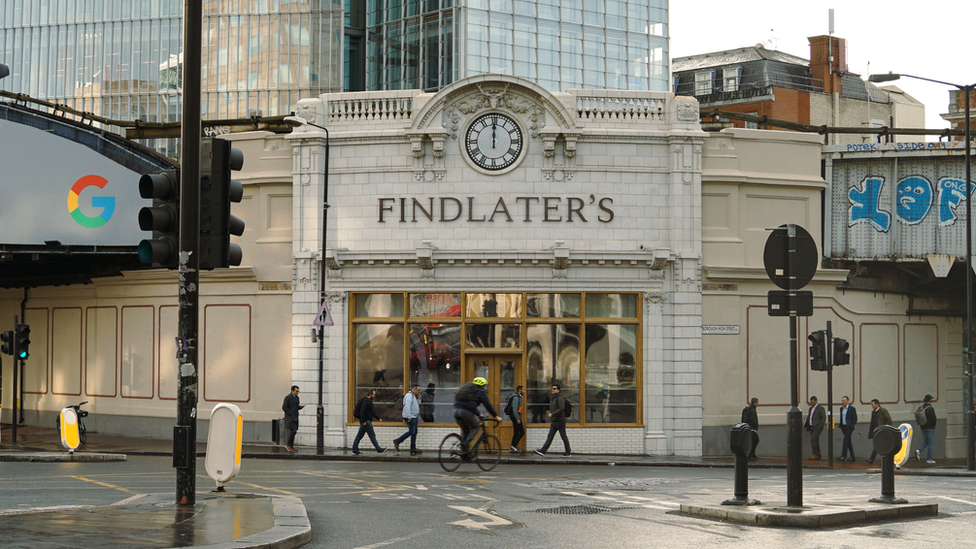
The end of Tooley Street next to London Bridge Station was known as Findlater's corner
A derelict set of railway arches that was once home to one of London's finest wine and spirits merchants has been restored as part of a £3m investment.
Situated next to London Bridge station, the arches hosted Findlater, Mackie and Todd, a shop first opened in 1863 where it remained for more than a century.
In 2018, the arches fell into disrepair after the remaining tenants left.
That was until the Arch Company bought the site as part of a £1.5bn property deal with Network Rail.
Renovations, which began in 2022, have seen the Edwardian façade, which was added at the turn of the last century, restored.
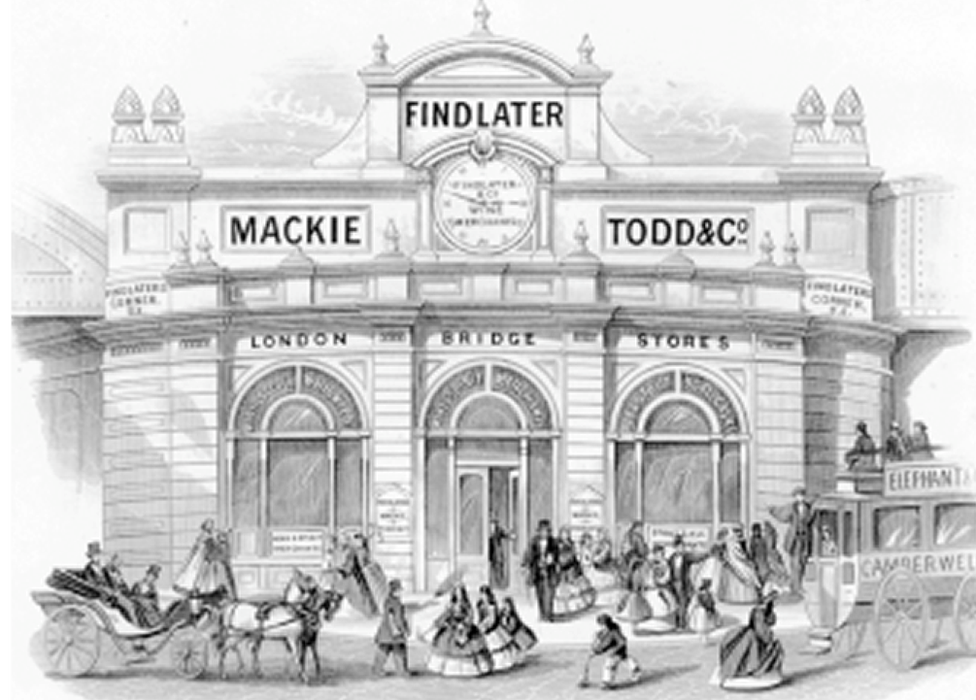
The company supplied the Royal household with wines and spirits
At the time, the glazed terracotta tiles, known as Carrara ware by Royal Doulton, were described as a "wonder material of the time".
The project's architect, Benedict O'Looney, said: "One of the things that was so attractive to architects and designers in the Edwardian period, is that the rain washed the soot off."
He added the material had a white glaze to make it look like marble.
Another restored feature is the stag's head at the top of the façade, which needed some of its stoneware antlers replacing.
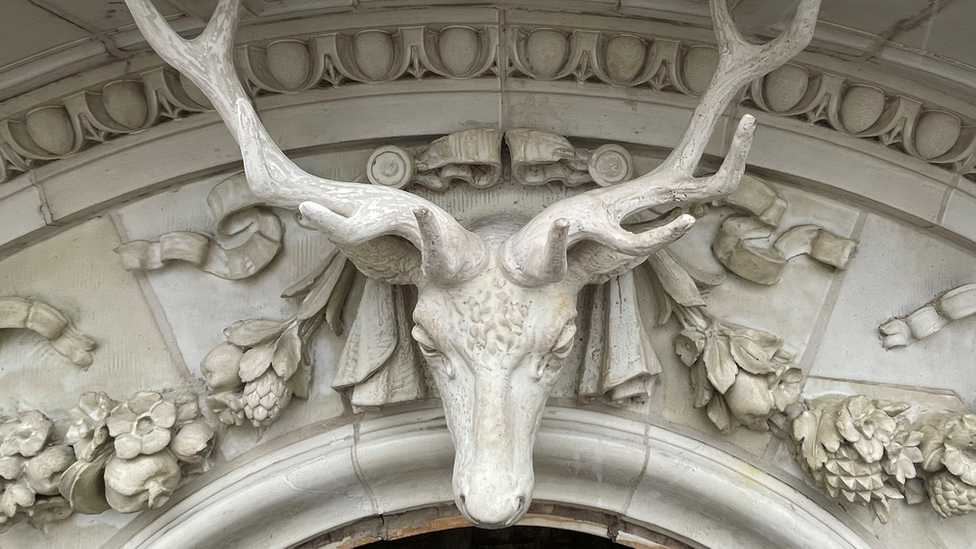
It is believed Findlater's was the first time a stag was used to promote whiskey
Now a familiar motif within the spirit's industry, it is thought its inclusion above the Findlater, Mackie and Todd shop was one of the first times it was used to promote whiskey.
The project team also made a surprise discovery when removing a section of plaster from a wall to another of the arches; a glass mosaic for an Express Dairy Tea Room dating back to the early 1900s.
Railway stations were a popular location for tea rooms because at the time they had access to the freshest milk, often transported from farms on trains before being sent to urban milk dairies.
"The tea rooms were one of the first places that ladies, who couldn't necessarily go and eat in bars or eat in chop houses, could come, get together as single women and meet their friends, so this is perhaps an important part of the emancipation of urban woman in London", said Mr O'Looney.
The restoration is part of the Arch Company's "Project 1000", which will see an investment of £200m into 1,000 derelict railway arches across the UK, bringing them back to commercial use for businesses to rent.
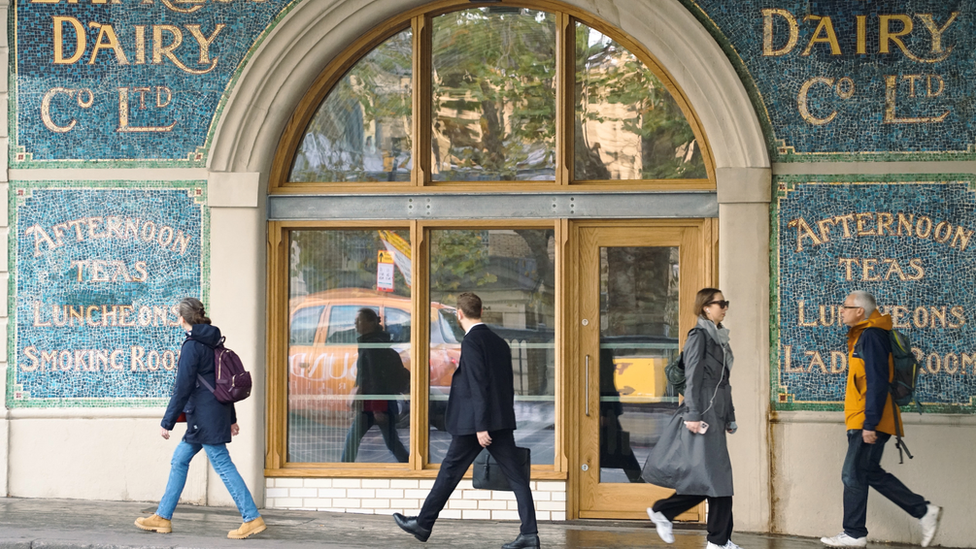
The tiled mosaic wall has also been restored
The Railway Heritage Trust also contributed £120,000 having campaigned for the past 10 years for Findlater's Corner to be restored.
"This was an absolute eyesore beforehand," said Andy Savage, chair of the trust.
"You would come over London Bridge, you had Findlater's right in front of you and it was totally derelict.
"It's now restored and looking really good, so it's a part of the railway that's in much better condition now."

Follow BBC London on Facebook, external, Twitter , externaland Instagram, external. Send your story ideas to hellobbclondon@bbc.co.uk, external
Related topics
- Published3 February 2023

- Published19 January 2023
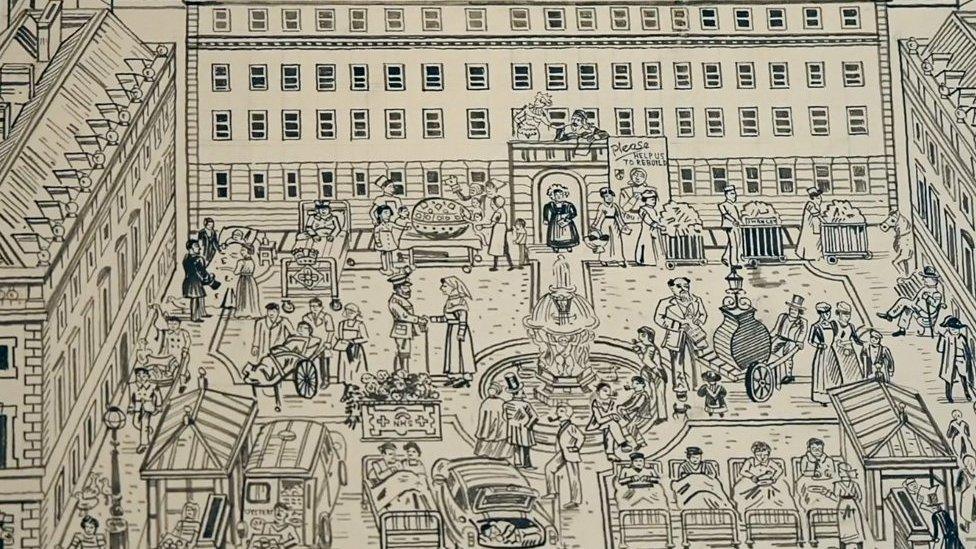
- Published10 November 2022
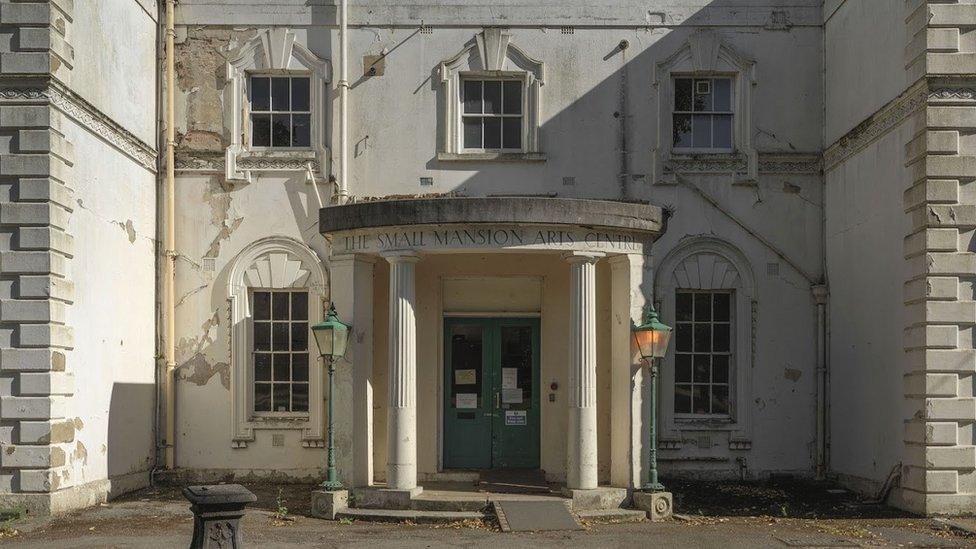
- Published30 March 2022
- Published13 December 2021
